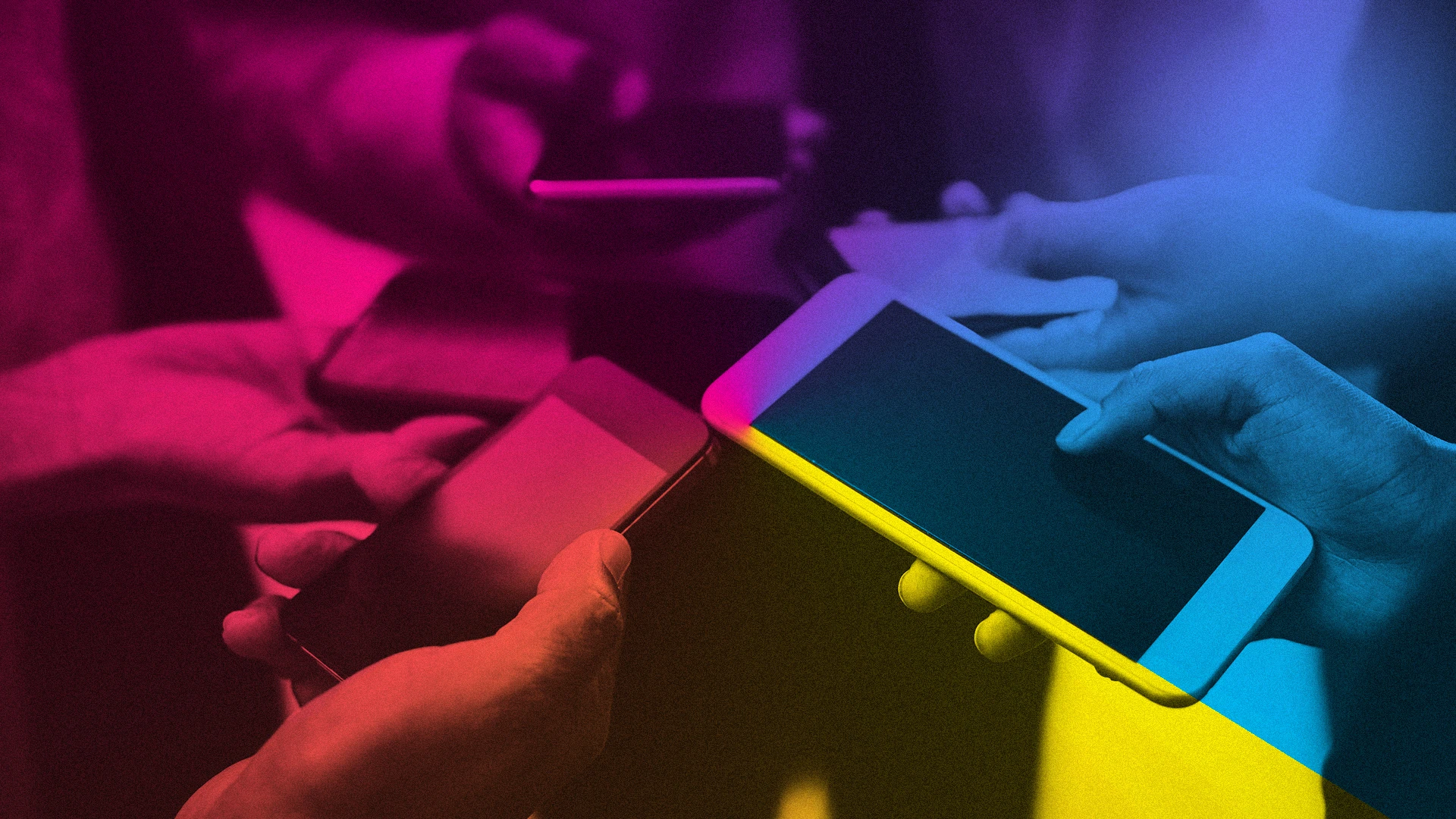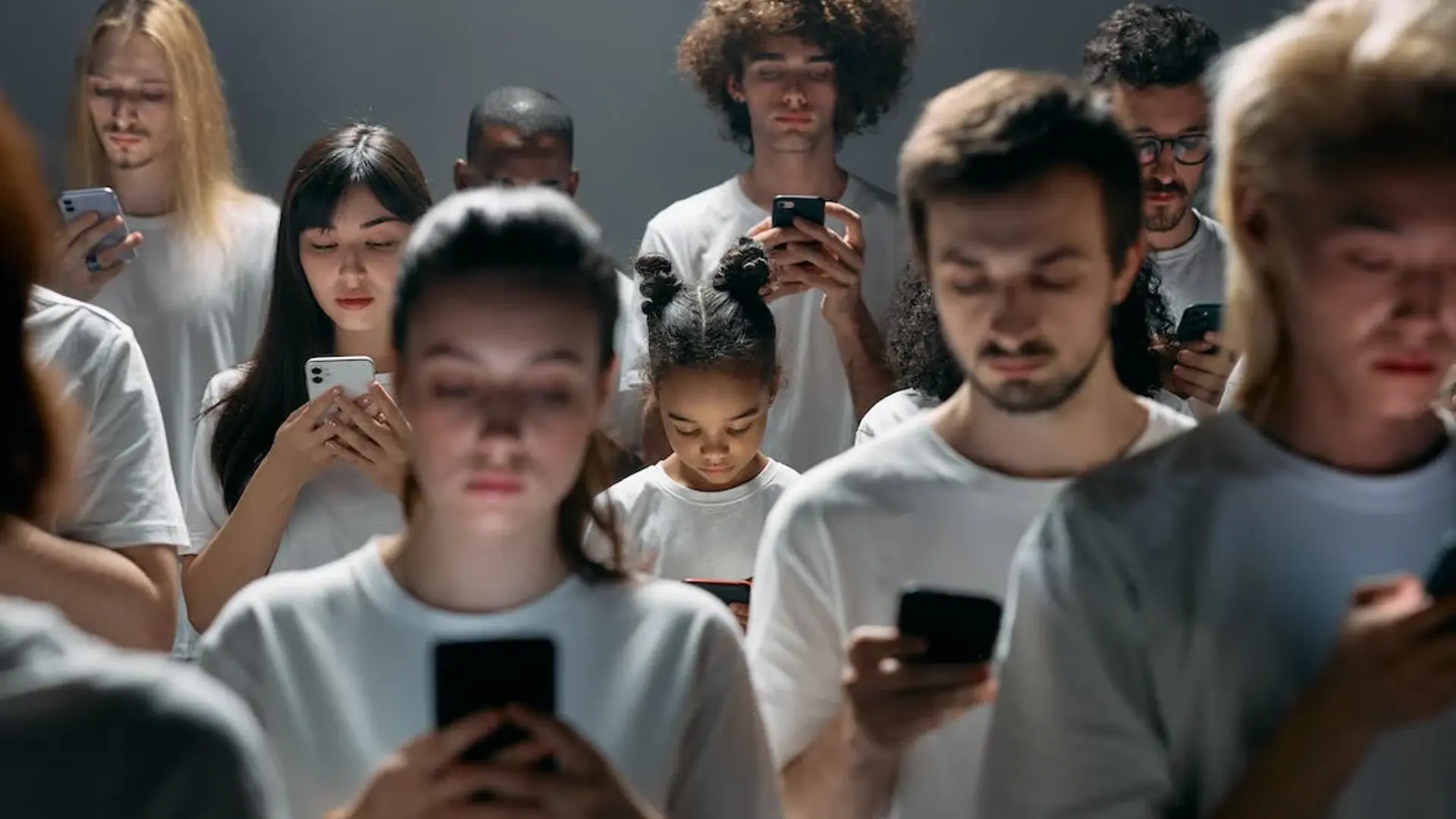The Cure for Depression and Anxiety Might Be Simpler Than You Think—And It’s Right in Your Hands (But Not How You’d Expect)

You’ve been looking down for quite some time. Your neck and shoulders ache a bit, but you roll them around occasionally and continue scrolling. Maybe Facebook or another site led you here, courtesy of those eerily accurate algorithms that seem to know exactly what will capture your attention. Sound familiar?

You’re not alone. We’re all in the same boat, fighting the urge to put our phones down but continually reaching for them because, well, it’s what we’ve grown accustomed to. But what if I told you that the very device you’re holding—the one that feels like a lifeline to the world—might be contributing to the very anxiety and depression you’re trying to escape?
What if the cure for these modern-day struggles is as simple as putting your phone down?
The Twilight Zone of Modern Life
As an ’80s kid who grew up playing outside until the streetlights came on, I can’t help but feel like we’re living in a bizarre version of the Twilight Zone. Back then, life was simpler. We connected face-to-face, played outside, and didn’t have the constant buzz of notifications pulling us into a digital abyss. Fast forward to today, and we’re essentially walking zombies, heads buried in our phones, barely coming up for air.
How did we get here? How did we become so tethered to these little devices that we can’t seem to put them down, even when they’re clearly taking a toll on our mental health? The answer might be right in front of us—literally. But instead of addressing it, we’re ignoring it, scrolling past the problem like it’s just another ad on our feed.

The Alarming Rise of Depression and Anxiety
The statistics are staggering. Over the past decade, rates of depression and anxiety have been steadily climbing. But since 2023, those numbers have skyrocketed. According to Gallup News, clinical depression was already on the rise before the COVID-19 pandemic, but the pandemic exacerbated the issue. Social isolation, loneliness, fear of infection, and psychological exhaustion have all played a role in this mental health crisis.
Women, teens, and marginalized communities are being hit the hardest, with depression and anxiety manifesting at earlier ages. And while there are many factors at play—rising costs of living, job scarcity, and societal uncertainties—one common thread ties it all together: our phones.

These devices, which were designed to connect us, have become both a crutch and a curse. They offer a fleeting sense of connection but often leave us feeling more isolated than ever. The constant barrage of news, social media comparisons, and dopamine-driven notifications has created a perfect storm for mental health struggles.
The Shocking Truth: Your Phone Might Be the Problem
Here’s the kicker: what if the cure for depression and anxiety isn’t found in a pill or a therapy session but in the simple act of putting your phone down?
A study highlighted by Relevant Magazine found that when people blocked internet access on their smartphones for just two weeks, 91% reported feeling significantly better. Their mental health improved, their focus sharpened, and their overall well-being got a boost. Another study involving 467 participants found that reducing phone time had effects comparable to antidepressants. Participants experienced better mental health, improved well-being, and enhanced attention spans.
The evidence is clear: our phones are both the problem and the solution.
Breaking Free from the Digital Grip
So, how do we break free from the digital chains that bind us? It starts with awareness and intentional action. Here are four practical steps to help you create a healthier relationship with your phone:
1. Start with a Morning and Evening Routine
Instead of reaching for your phone first thing in the morning, try stretching, meditating, or going for a walk. In the evening, set a specific time to put your phone away. Consider charging it in another room to avoid the temptation of late-night scrolling.

2. Turn Off Notifications
Those constant “dings” are designed to pull you back in. Turn off notifications for non-essential apps, especially social media. You’ll be amazed at how much more present you feel when you’re not constantly interrupted.
3. Take a Break
If you find yourself mindlessly scrolling, step away. Set boundaries for your screen time, whether it’s an hour a day or a full digital detox weekend. Use that time to reconnect with yourself and the people around you.

4. Be Present
In a world of quick texts and emails, meaningful face-to-face interactions have become rare. Make an effort to spend quality time with loved ones, free from the distraction of your phone.

A Call to Action: Look Up and Live
The truth is, our phones aren’t going anywhere. Technology will continue to evolve, and the digital world will keep expanding. But we have the power to control how we engage with it. By setting healthy boundaries, we can reclaim our mental health, our time, and our lives.
So, look up. Set your eyes on the world around you—the people, the beauty, the moments that matter. The cure for depression and anxiety might not be found in a pill or a therapy session. It might be as simple as putting your phone down and living in the present.
The power to change is in your hands—literally. Will you take the first step today?

![Notification Pictures [HD] | Download Free Images on Unsplash](https://images.unsplash.com/photo-1514464750060-00e6e34c8b8c?fm=jpg&q=60&w=3000&ixlib=rb-4.0.3&ixid=M3wxMjA3fDB8MHxzZWFyY2h8Mnx8bm90aWZpY2F0aW9ufGVufDB8fDB8fHww)



